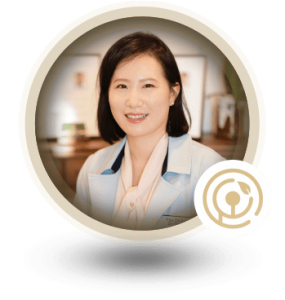Introduction:
Polycystic Ovary Syndrome (PCOS) is a complex hormonal disorder affecting millions of women worldwide. While modern medicine offers various treatments, some individuals are turning to a time-tested approach: Chinese herbal medicine. Rooted in Traditional Chinese Medicine (TCM), this holistic system has shown promise in managing PCOS symptoms and promoting hormonal balance. In this blog, we will delve into the principles of Chinese herbal medicine for PCOS, explore specific herbs used in treatment, and shed light on the potential benefits of this ancient remedy.
Understanding PCOS and TCM:
PCOS is characterized by hormonal imbalances, irregular menstrual cycles, and the development of small cysts on the ovaries. According to TCM, PCOS is often associated with Qi (energy) and blood stagnation, as well as imbalances in the kidney and liver meridians. The goal of Chinese herbal medicine is to restore harmony within the body, promoting overall wellness and alleviating PCOS symptoms.
Herbs for PCOS Management:
- Cinnamon (Gui Zhi): Known for its ability to improve insulin sensitivity, cinnamon is commonly used in TCM to regulate blood sugar levels and hormone secretion, making it beneficial for PCOS management.
- Peony Root (Bai Shao Yao): Peony root is believed to regulate hormone levels, reduce inflammation, and promote a healthy menstrual cycle.
- Licorice Root (Gan Cao): This herb is often used to balance hormone levels and support adrenal function, which may help with PCOS-related symptoms like acne and hair growth.
- Dong Quai (Dang Gui): Dong Quai is known as the “female ginseng” and is frequently used to support reproductive health and balance hormone levels in women.
- White Peony (Bai Shao): White peony can help alleviate pain and reduce inflammation associated with PCOS.
Personalized Treatment Plans:
Chinese herbal medicine is not a one-size-fits-all approach. When using TCM to address PCOS, it’s crucial to consult a qualified practitioner who can tailor treatment to individual needs. The practitioner will consider factors like the patient’s constitution, specific PCOS symptoms, and overall health to create a personalized herbal formula.
Combining TCM with Other Therapies:
TCM can complement conventional treatments for PCOS, including lifestyle modifications and medication. Integrating acupuncture, dietary changes, and stress management techniques can enhance the effectiveness of Chinese herbal medicine in addressing PCOS symptoms.
Caution and Patience:
As with any treatment, it’s essential to exercise caution and patience. Chinese herbal medicine for PCOS may require time to show significant results. It’s essential to follow the practitioner’s advice and continue any prescribed treatments or medications unless otherwise directed by a healthcare professional.
Conclusion:
Chinese herbal medicine offers a holistic and time-tested approach to managing PCOS symptoms and promoting hormonal balance. By addressing the root causes of PCOS and focusing on restoring harmony within the body, these traditional herbs can be valuable allies in the journey to improved health and well-being. However, it is essential to work with a qualified TCM practitioner to develop a personalized treatment plan that addresses your specific needs and ensures safe and effective results. Remember that individual experiences may vary, so embracing patience and consistency can lead to a harmonious balance between ancient wisdom and modern medical care.






